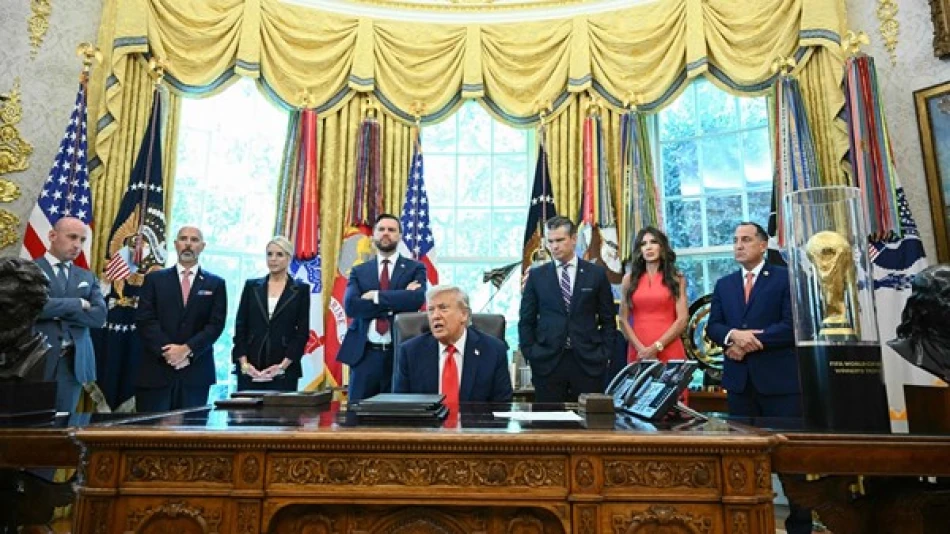
Trump Weighs in on Security Guarantees for Ukraine: Navigating a Delicate Geopolitical Landscape
Trump Signals End to Ukraine Funding While Promising Support in Complex Peace Negotiations
President Donald Trump delivered mixed signals on Ukraine policy Monday, declaring the United States will no longer spend money on the war-torn nation while simultaneously pledging American support amid ongoing peace negotiations. The contradictory stance highlights the delicate balance Trump faces as he attempts to fulfill campaign promises of ending the conflict while managing complex security guarantees that Ukraine considers essential for any lasting agreement.
The Security Guarantee Dilemma
Trump acknowledged he has not discussed specific security guarantees for Ukraine, despite these assurances representing what many analysts view as the most significant obstacle to resolving the conflict that began in February 2022. Ukrainian President Volodymyr Zelensky has consistently demanded concrete security commitments from Western allies as a prerequisite for any peace deal with Russia.
The timing of Trump's comments proves particularly significant, coming after his discussions with both Zelensky and European leaders, as well as reported communications with Russian President Vladimir Putin following what appears to be a summit in Alaska.
Historical Precedent and Strategic Implications
Ukraine's insistence on security guarantees stems from the failure of previous agreements, most notably the 1994 Budapest Memorandum, where Ukraine surrendered its nuclear arsenal in exchange for security assurances from the US, UK, and Russia—commitments that proved worthless when Russia invaded in 2022. This historical betrayal explains why Kyiv now seeks more robust, legally binding security arrangements.
The Financial Contradiction
Trump's declaration that America will cease Ukraine funding creates an immediate contradiction with his promise of continued support. Since February 2022, the United States has provided over $100 billion in military, economic, and humanitarian aid to Ukraine, making it the largest single contributor to Ukraine's war effort.
For markets and defense contractors, Trump's stance signals potential major shifts in government spending patterns. Defense stocks that have benefited from Ukraine-related contracts may face uncertainty, while European defense companies could see increased demand as the continent potentially assumes greater responsibility for Ukraine's security needs.
European Burden-Sharing Reality
Trump's approach appears designed to force European allies to shoulder more financial responsibility for Ukraine's security—a continuation of his long-standing criticism of NATO burden-sharing arrangements. This strategy mirrors successful pressure campaigns during his first presidency that led to increased European defense spending.
Diplomatic Chess Game
The revelation that American and Ukrainian officials plan to meet this week to discuss potential security guarantees suggests active negotiations continue despite Trump's public statements. This diplomatic activity indicates the administration recognizes that ending the conflict requires more than simply cutting off aid.
From Putin's perspective, Trump's funding cuts may appear as a weakening of Western resolve, potentially strengthening Russia's negotiating position. However, the continued promise of support and ongoing diplomatic engagement suggests Moscow cannot count on complete American withdrawal from Ukrainian affairs.
Market and Geopolitical Implications
Trump's approach creates significant uncertainty for global markets, particularly in energy and defense sectors. European governments may need to dramatically increase defense budgets, potentially affecting fiscal policies and bond markets across the continent. Meanwhile, Ukraine's economy, heavily dependent on Western aid, faces an uncertain transition period that could impact global grain markets and supply chains.
The success or failure of Trump's strategy will likely set precedents for how future American administrations handle proxy conflicts and alliance commitments, making the Ukraine negotiations a defining moment for 21st-century American foreign policy.
Most Viewed News

 Layla Al Mansoori
Layla Al Mansoori






